 Over time, nightly teeth grinding and clenching can make serious trouble for your smile. The friction from bruxism can lead to serious concerns about your appearance, as enamel wear and tear can have a visible effect on the way you look. MMC Dental can help you deal with bruxism by providing a custom appliance to wear while you sleep. Protecting your teeth while you rest can prevent further issues with grinding and clenching. Our practice can also help people who feel self-conscious about their appearance because of issues with bruxism. Through the right cosmetic service, we can give you back your confidence in your smile! We can also take care of enamel damage that might call for restorative treatment. (more…)
Over time, nightly teeth grinding and clenching can make serious trouble for your smile. The friction from bruxism can lead to serious concerns about your appearance, as enamel wear and tear can have a visible effect on the way you look. MMC Dental can help you deal with bruxism by providing a custom appliance to wear while you sleep. Protecting your teeth while you rest can prevent further issues with grinding and clenching. Our practice can also help people who feel self-conscious about their appearance because of issues with bruxism. Through the right cosmetic service, we can give you back your confidence in your smile! We can also take care of enamel damage that might call for restorative treatment. (more…)
Creating Custom Restorations With 3D Printers
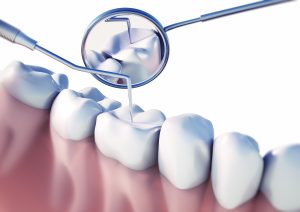 With advanced technology, we have the ability to streamline and improve your treatments, addressing issues like decay and infection, and even improving the beauty of your smile. To create restorations with precision and accuracy, and to do so quickly, your Houston, TX, dentist will employ advanced 3D printing technology.
With advanced technology, we have the ability to streamline and improve your treatments, addressing issues like decay and infection, and even improving the beauty of your smile. To create restorations with precision and accuracy, and to do so quickly, your Houston, TX, dentist will employ advanced 3D printing technology.
Examining Your Smile With Digital Technology
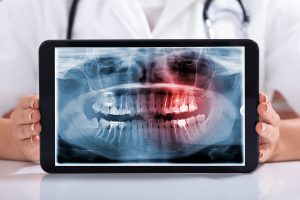
Every six months, we want to see kids and adults alike for a routine checkup visit. Dental exams help us address trouble in the early stages, and protect smiles from major issues. In today’s blog, your Houston, TX, dentist will explain how we examine and diagnose your smile with advanced CBCT technology.
A Partial Denture Addresses Major Tooth Loss
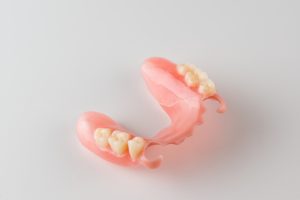
When you suffer from a more advanced stage of tooth loss, a bridge isn’t enough to fill the multiple gaps in your smile. However, you may not need a full denture yet either! Fortunately, your Houston, TX, dentist knows how to address tooth loss with a custom partial denture.
Fill Your Smile’s Gaps With A Bridge
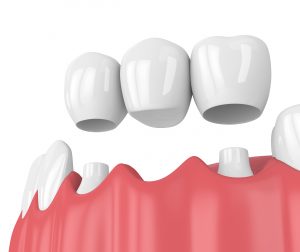
When you have gaps due to tooth loss, this could not only alter your smile’s appearance, but also harm your function and overall health. To fill these gaps and prevent major complications down the road, then you should contact your Houston, TX, dentist to talk about bridges. We can secure these prosthetics with crowns, or even long-lasting dental implants!
Does Your Tooth Need A Full Or Partial Crown?
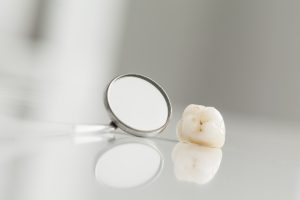 When you have a damaged tooth, or develop decay or infection, then a restoration could return your tooth to optimal function, health, and beauty. In today’s blog, your Houston, TX, dentist will look at our full and partial crowns, and discuss how each one could help transform the health and appearance of one or more of your natural teeth.
When you have a damaged tooth, or develop decay or infection, then a restoration could return your tooth to optimal function, health, and beauty. In today’s blog, your Houston, TX, dentist will look at our full and partial crowns, and discuss how each one could help transform the health and appearance of one or more of your natural teeth.
Performing Root Canal Therapy To Stop Infection
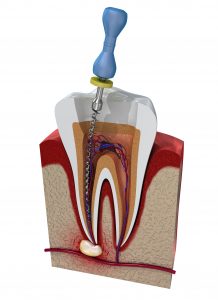
When a tooth becomes infected, you could suffer from serious discomfort and over time, risk losing your tooth altogether. However, with an endodontic treatment known as a root canal procedure, your Houston, TX, dentist will be able to repair the tooth and ensure you continue to smile with confidence.
A Cosmetic Approach To Dental Fillings
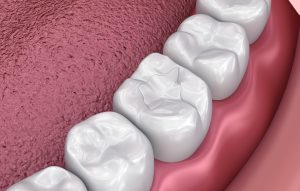
Tooth decay impacts people of all ages, from kids to adults, and could mean infection or even tooth loss unless treated. To halt the cavity and prevent further pain, we may suggest a filling. In today’s blog, your Houston, TX, dentist will explain how we use our fillings, made from a lifelike material, to provide relief from a cavity!
Designing Our Cosmetic Veneers
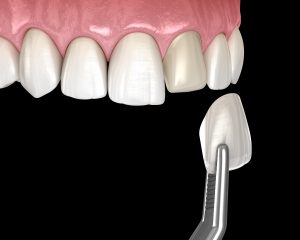
For a total smile makeover in just two visits, your Houston, TX, dentist may suggest the placement of one or more porcelain veneers. In today’s blog, we’re talking about how we design and craft these lifelike restorations, and the benefits they provide for your your smile. From masking stains to reshaping damaged teeth, they can transform and perfect your smile!
We Offer Cosmetic Gum Contouring
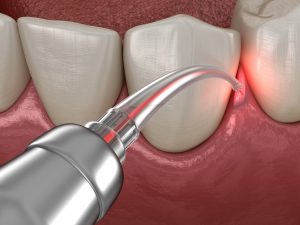
We’ve recently talked about how we improve the esthetics of your teeth with professional teeth whitening and cosmetic dental bonding. But what about your gums? Issues like a gummy smile could impact the appearance of your teeth and your smile’s symmetry. To correct these issues, your Houston, TX, dentist may suggest cosmetic gum contouring!





